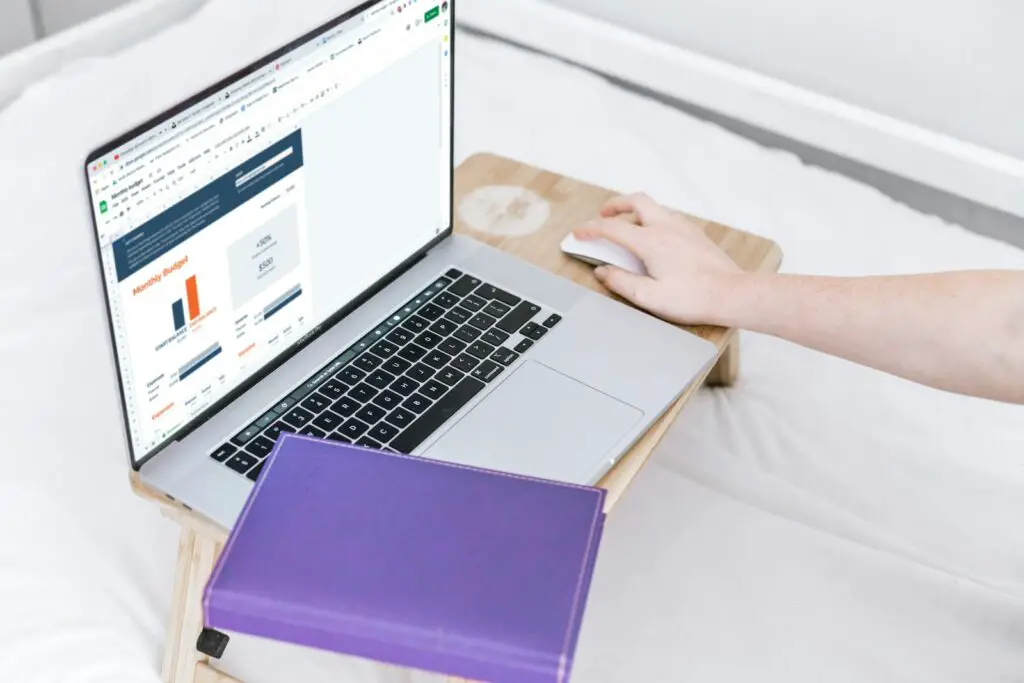So you’ve somehow landed multiple gig jobs at once. Maybe you’re a freelance writer picking up extra editing shifts or a rideshare driver making deliveries on the side. Whatever the combo, juggling multiple income streams definitely has its perks—but keeping your finances straight can get tricky. From tracking irregular paychecks to estimating quarterly taxes, you need some financial finesse to stay afloat. But don’t let money anxiety sink your side hustle dreams. With a few simple financial tips and strategies, you can take control of your cash flow and sail smoothly between gigs. First up: start separating business and personal finances.
Keep reading for tips to keep the accounts in order so you can focus on the fun parts of being a serial side hustler. We’ve got your back with some budget-savvy tricks to keep income rolling in and expenses under control across all your ventures.
The Gig Economy: An Overview
The gig economy is characterized by a flexible job market where short-term, adaptable employment opportunities are prevalent, and businesses opt for independent contractors and freelancers instead of hiring full-time staff. As a gig worker, your livelihood may involve engaging in various part-time roles, temporary assignments, or freelance projects.
Stay Organized
To juggle multiple jobs, you need to be organized. Set up a simple system to keep track of assignments, deadlines, invoices, and payments for each gig. A spreadsheet, calendar, and project management tool can help you stay on top of everything. Try to group similar tasks together so you can work efficiently.
Set Payment Terms
For each gig, determine how and when you will get paid. As an independent contractor, you need to specify payment terms upfront to avoid late or missing payments. Consider options like weekly or monthly direct deposit, especially for your most consistent gigs.
Build an Emergency Fund
Gig work can be unpredictable, so you need savings to fall back on during slow periods or if a gig falls through unexpectedly. Aim to have at least 3-6 months of essential expenses in an emergency fund. Make sure to factor in health insurance, retirement contributions, and other costs in case your gig work hours are reduced.
Juggling multiple jobs can be challenging, but with organization, clear payment terms, and an emergency cushion, you can thrive as an independent worker in the gig economy. The flexibility and freedom to choose your own work can make the hassle worthwhile. With time, you’ll develop a rhythm that works for your unique mix of gigs.

Budgeting Tips for Managing Multiple Income Sources
Freelancing often means irregular income and fluctuating paychecks. To stay on top of your finances, you need a solid budget. Here are some tips to keep you in the black:
Track your income and expenses
The first step is knowing exactly how much is coming in and going out each month. Use a budgeting app to log all income, bills, debt payments, and discretionary spending. This will show you where you can cut costs or need to earn more.
Pay yourself first
Figure out how much you need for essentials, then pay yourself as if you have a regular salary. Put this in a separate account for rent, food, and bills. The rest can be used for other income sources or saved. Paying yourself first gives you stability and ensures your basic needs are covered.
Save for emergencies and slow periods
As a freelancer, your income may fluctuate. Set aside at least 3-6 months of expenses in case work slows down. An emergency fund will give you a financial cushion so you can pay the bills during periods where work or pay is irregular.
Reduce or eliminate debt
The less money you owe each month, the less you need to earn to cover costs. Make extra payments on high-interest debts like credit cards to pay them off faster. Once paid off, put that extra money towards other financial goals.
Diversify your income
Relying on a single client or income source is risky. Look for ways to generate income from multiple sources, such as taking on more freelance work, selling digital products, affiliate marketing, or building a blog. Spreading your income across different areas provides more stability and reduces risk.
Following these budgeting best practices will help you gain control of your finances as a freelancer. With a solid budget in place, managing the ups and downs of irregular income and multiple paychecks will feel less like a juggling act and more like smooth sailing.
Tax Tips: Filing as a Freelancer
Freelancing often means juggling multiple jobs and income sources. When tax time comes around, things can get complicated. Here are some tips to help you stay organized and maximize your tax deductions.
Keep Good Records
As a freelancer, it’s up to you to keep records of all your income and expenses. Create a simple bookkeeping system to track invoices, receipts, and payments. Note the date, amount, and business purpose for each transaction. These records will be essential when filing your taxes.
Take Advantage of Deductions
Some common write-offs for freelancers include home office expenses, travel, supplies, and business use of your phone or vehicle. Establish a dedicated workspace in your home and track costs for things like rent, utilities, and office supplies. Log your business miles and keep fuel receipts. All these deductions can help lower your taxable income.
Consider Incorporating
If your freelance income exceeds $400, you’ll need to pay self-employment tax of 15.3% in addition to your income taxes. Forming an S-corporation or LLC and electing to be taxed as an S-corp can help minimize this tax burden. You’ll pay yourself a reasonable wage from the business, then take the rest of the profits as distributions which are not subject to self-employment tax. However, there are filing fees and administrative requirements to keep in mind. For some freelancers, the tax savings are worth the extra hassle. For others, remaining a sole proprietor is simpler.
The life of a freelancer often feels like a financial juggling act. But with good record keeping, tax planning, and the help of a financial advisor, you can make the most of the tax rules and take control of your finances. Staying on top of your accounting and maximizing deductions will help ensure you keep more of what you earn.
Financial Tips for Juggling Building Your Emergency Fund
As a freelancer, having an emergency fund is crucial. Without the security of a steady paycheck, you never know when work may dry up or unexpected expenses may arise. Aim to save enough to cover three to six months of essential expenses like rent, food, and transportation in case work slows down.
Set a Savings Goal
Figure out how much you need each month to cover necessities. Then set a goal to save that amount over the next six to twelve months. Even putting aside $200-$500 a month can help build up your fund over time. The key is to pay yourself first by automatically transferring money to your emergency fund each month before paying other expenses.
Find Ways to Trim Your Budget
Identify areas where you can cut or minimize expenses to contribute more to your emergency fund monthly. Examine opportunities to decrease non-essential expenditures, including dining out, entertainment, and hobbies. Investigate more budget-friendly options for your cell phone plan or insurance. Choose to prepare your coffee at home rather than buying it from external sources. Incremental adjustments in various areas can accumulate into significant savings over the long term.
Take on Extra Work if Needed
If trimming your budget isn’t enough, consider taking on some extra freelance work to earn more money for your emergency fund. Drive for a ridesharing service in your spare time, do market research studies, or find freelance writing or virtual assistant jobs you can do on the side. Any extra money you earn can go straight into your emergency fund.
Don’t Tap It for Non-Emergencies
The most challenging aspect of establishing your emergency fund is resisting the temptation to utilize it for non-essential purposes. Reserve its use strictly for genuine financial emergencies, such as medical bills, job loss, or unexpected circumstances. Only tap into it as a last resort after exploring ways to reduce expenses in other areas. Promptly replenish the fund to ensure it remains a financial safety net for potential emergencies.
With steadfast discipline and regularity, you can develop a robust emergency fund to provide financial security and tranquility in your freelancing journey. Prioritize allocating funds to yourself first, adopt frugal spending habits, and explore opportunities to generate additional income when feasible. Your future self will express gratitude for the financial cushion and stability you’ve established.
Additional Money Saving Hacks for Gig Workers
Freelancing often means living on an unpredictable income, so saving money wherever you can is key. Here are a few easy ways to keep more cash in your pocket:
Use Free or Low-cost Tools
As a freelancer, you rely on various tools and services to get work done. But that doesn’t mean you have to pay top dollar. Take advantage of free or inexpensive options whenever you can, like using Google’s G Suite instead of Microsoft Office, or a free invoicing tool rather than an paid one. Even saving a few dollars a month on subscriptions and software licenses will add up over time.
Ask About Discounts
Don’t be afraid to ask your service providers if they offer any discounts for freelancers or gig workers. Some may provide special rates or packages for self-employed individuals. It never hurts to explain your situation, and the worst they can say is no. You could save on things like health insurance, phone plans, gym memberships, and more.
Consider Co-Living
Living alone is expensive. Sharing housing costs with other freelancers or remote workers in a co-living space can cut your rent and utility payments significantly. Look for listings on sites like CoLiv and see if any opportunities in your area match your needs. Just be sure to find potential roommates with a similar work-from-home lifestyle.
With creativity and persistence, you can uncover new ways to earn or save more money as a freelancer. Keep your living expenses low, take advantage of any discounts or deals you can, and be on the lookout for new side hustles to generate additional income. Living lean will help ensure you have enough financial cushion to handle the ups and downs of freelance work. By making the most of your money, you’ll gain more stability and flexibility in your self-employed career.
Achieve a Balanced Lifestyle
While saving and earning as much as possible is important, don’t forget to take care of yourself as well. An unhealthy or unbalanced lifestyle will make it difficult to maintain your productivity and motivation over the long haul. Here are some tips:
Practice Self-care Daily
Make time for activities that recharge you, whether that’s exercising, meditating, or pursuing a hobby. Prioritize getting enough sleep and eating nutritious meals. Regular self-care will keep you feeling energized and focused between projects.
Take Micro Breaks
Set a timer to remind yourself to take short breaks every 50-60 minutes while working. Even a 5-10 minute break to stretch, snack, or check non-work related notifications can refresh your mind and boost your productivity for the next task.
Schedule Time Off
As a freelancer, you may be tempted to always be “on.” But taking planned time away from work is essential for recharging your creativity and reducing burnout. Block off vacation days on your calendar and stick to them.
Cultivate Non-work Relationships
Make an effort to spend time with friends and family outside of your work. Social connections and a balanced personal life will help prevent freelancing from taking over your identity completely.
By balancing your work with proper self-care, breaks and a healthy personal life, you’ll be better equipped to tackle the challenges of freelancing for the long haul. Remember – you’re not just a “gig worker,” you’re a whole person with needs beyond your career.
Stay Organized and Maintain Routines
Creating systems to organize your tasks, finances and schedule can help stabilize your work life as a freelancer. Use tools like:
- A task manager app to keep track of projects and deadlines
- A calendar to block out work and personal time
- Budgeting software to monitor your income and expenses
Having routines you follow daily and weekly can provide much-needed structure, especially for time management and staying on top of work. But leave room for flexibility when needed.
Network and Collaborate
Look for opportunities to connect with other freelancers and self-employed people facing similar challenges. Forming these relationships can help you exchange advice, land more clients and find accountability partners. Consider:
- Joining an online community or local meetup group
- Partnering with another freelancer for certain projects
- Asking other solopreneurs for advice or feedback
Collaboration and a support system can combat the isolation many freelancers feel. Staying connected to others in your industry or field will also expose you to new opportunities and ideas that can help you progress in your work.
Budgeting Tips for Managing Multiple Income Sources
Once you’ve landed a few side gigs, the next step is budgeting your money wisely. Having multiple streams of income can feel like a financial windfall, but without a budget, you may end up spending more than you earn.
First, track your income and expenses. Note how much you’re making from each gig and how much you’re spending on essentials like rent, food, and transportation each month. Then allocate your funds across necessary expenses, financial goals like paying off debt, and discretionary items. Aim to spend less than you earn.
Next, pay off high-interest debts like credit cards first before putting money into savings. Pay off bills on time to avoid late fees which can really add up. Consider setting up automatic payments if possible.
Also, look for ways to cut costs in your budget. Can you spend less on groceries by meal prepping or cut the cord on cable in favor of streaming services? Every dollar saved is a dollar that can go towards your financial goals.
Finally, set savings goals and automate transfers to your savings account each month. Even small, regular contributions will help build your emergency fund over time. The security of having this cushion will give you more freedom to pursue the gigs you want.
With a solid budget and financial plan in place, you’ll be able to make the most of your freelance lifestyle without the stress of financial instability. Balancing multiple jobs is challenging enough, so take control of your money and let your budget work for you. Focus on the rewards of being your own boss and having flexibility – that’s what this lifestyle is all about!
Additional Money Saving Hacks for Gig Workers
Track your income and expenses
As a freelancer, your income and expenses can fluctuate from month to month. Use a budgeting app like Mint or You Need a Budget to log all your earnings and spending. See where you can cut costs by reducing subscriptions or dining out less. A budget will give you peace of mind that you can pay essential bills even when work is slow.
Take advantage of tax deductions
As a self-employed person, you’re able to deduct business expenses like a home office, travel, and supplies. Keep records of mileage, receipts, invoices, and other documents to claim eligible deductions. You may be able to lower your tax burden significantly. Meet with an accountant to find all possible write-offs.
Build an emergency fund
With an unpredictable income, an emergency fund is essential. Aim to save enough to cover at least 3-6 months of expenses in case work dries up or you have a large unexpected bill. Automatically transfer money each month to a high-yield savings account for your emergency fund. Make this a top priority—you’ll thank yourself later if you go through a slow period.
Consider diversifying your income
While freelancing offers flexibility, relying on a single source of income can be risky. Look for ways to generate income from multiple sources such as online courses, ebooks, affiliate marketing, or other passive income streams. Build up alternative revenue sources over time to provide more financial security and stability. Diversity is key to thriving as a gig worker.
Following these money-saving tips will help ensure you stay in the black even when work is unpredictable. With diligent budgeting, tax planning, emergency savings, and multiple income streams, you’ll gain more control over your freelance finances and feel confident in your ability to earn and manage money. Staying financially fit is well worth the effort.
Conclusion
So there you have it, folks. Juggling multiple gig jobs takes planning and discipline to stay financially afloat. Set a budget, automate savings, maximize tax write-offs, and don’t spread yourself too thin. Remember to track income versus expenses, build an emergency fund, and invest surplus earnings. With some strategic money management, you can make it work and achieve your goals. The key is staying organized, minimizing debt, and living within your means. It may take some trial and error to find the right balance. But with diligence and smart money moves, you can thrive on the variable income of the gig economy. Just breathe, be flexible, and keep chipping away – you’ve got this!















Leave a Reply